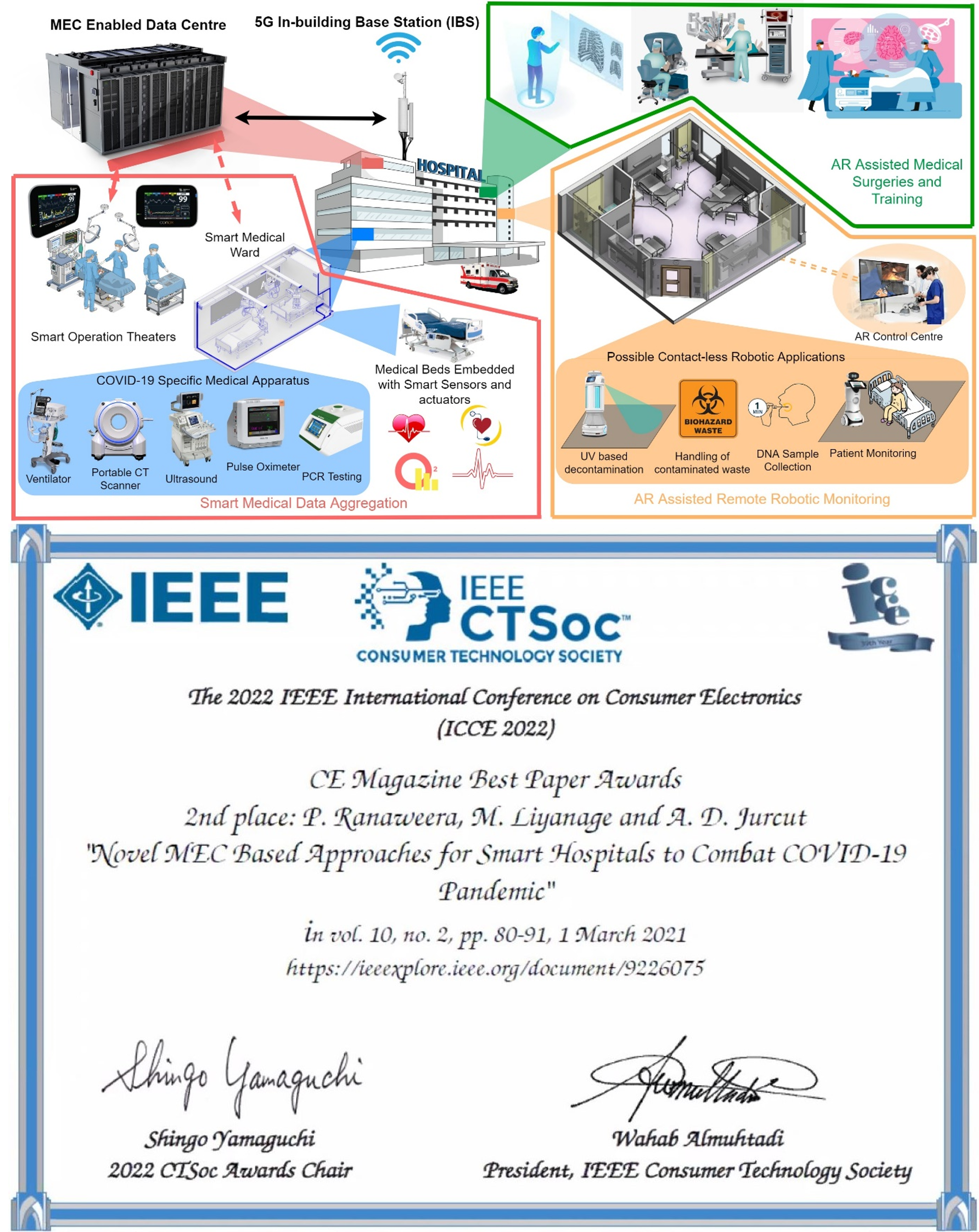
Novel MEC-based Approaches for Smart Hospitals to Combat COVID-19 Pandemic
- Post by: Pasika Ranaweera, Madhusanka Liyanage and Anca Delia Jurcut
- October 15, 2020
- Comments off
COVID-19 or Coronavirus has thrilled the entire world population with uncertainty over their survival and well-being. The impact this pathogen has caused over the globe has been profound due to its unique transmission features; that urges for contact-less strategies to interact and treat the infected. The impending 5G mobile technology is immersing the applications that enable the provisioning of medical and healthcare services in a contactless manner. The edge computing paradigms offer a de-centralized and versatile networking infrastructure capable of adhering to the novel demands of 5G. In this article, we are considering Multi-Access Edge Computing (MEC) flavour of the edge paradigms for realizing the contact-less approaches that assist the mediation of COVID-19 and the future of healthcare. In order to formulate this ideology, we propose three use cases and discuss their implementation in the MEC context. Further, the requirements for launching these services are provided. Additionally, we validate our proposed approaches through simulations.


